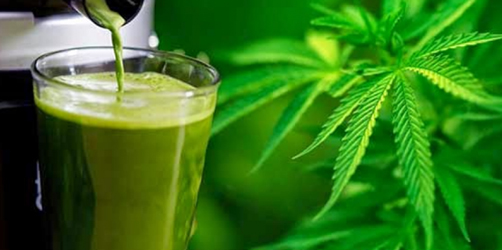Big Alcohol Lunges to Take Over Cannabis
 Public health advocates face a complicated question: how can marijuana’s growing acceptance as a recreational and medical product be reconciled with the potential for a powerful pot industry to engage in the kinds of reckless, corrupt, and manipulative practices Big Alcohol has mastered? Constellation Brands, the owner of Corona beer and Svedka vodka among other brands, offers an easy answer: with their purchase of a 10% stake in Canopy Growth, they declare Big Alcohol’s intention to be the marijuana industry.
Public health advocates face a complicated question: how can marijuana’s growing acceptance as a recreational and medical product be reconciled with the potential for a powerful pot industry to engage in the kinds of reckless, corrupt, and manipulative practices Big Alcohol has mastered? Constellation Brands, the owner of Corona beer and Svedka vodka among other brands, offers an easy answer: with their purchase of a 10% stake in Canopy Growth, they declare Big Alcohol’s intention to be the marijuana industry.
With Monday’s (10/30/17) $191 billion dollar investment in the Canadian marijuana producer Canopy, Constellation has declared its intention to get out in front of the legalization of recreational marijuana in Canada and the U.S. “Our company’s success is the result of our focus on identifying early-stage consumer trends, and this is another step in that direction,” Constellation CEO Rob Sands told Bloomberg Businessweek.
What that means seems still up for debate, even among the business partners themselves. Bruce Linton, the CEO of Canopy—which makes medicinal marijuana products for the Canadian market—reassured Bloomberg that “[t]here’s no need to include alcohol, nor is there an intent to include alcohol” in their products. Yet Constellation told Beer Business Daily (subscription required), “There are going to be alcoholic beverages that also contain cannabis.”
This presents multiple problems both for public health advocates and independent marijuana producers. The resources of Big Alcohol, compared to those of marijuana companies, are vast, including access to lobbyists and the ability to distort public health research. While Canopy currently works in a regulated medical marijuana space, once full legalization passes, Big Alcohol’s expertise in tearing down safety regulations, promoting junk science, and marketing to youth will introduce a raft of health problems that negate the benefits of prescription weed.
“The alcohol companies are somewhat terrified of this industry,” a rival marijuana executive told Bloomberg. “They see cannabis as a substitute for alcohol.” Data on chronic marijuana use are scant, so it remains unclear whether long-term marijuana use is better for the public health, but this buyout makes that issue moot: if Big Alcohol holds the marijuana industry’s reins, cannabis has zero chance of mitigating alcohol-related harms.
This buyout could signal the start of a race to the bottom among marijuana companies. MolsonCoors and Diageo both told Bloomberg in a separate article they are anticipating entering the marijuana industry, and their entry will instantly create Big Marijuana and gut independent growers that don’t enjoy such partnerships.
“Big Alcohol is what happens when you fail at regulating a recreational drug company,” said Michael Scippa, Public Relations Director of Alcohol Justice. “We can’t allow Big Marijuana to become something similar—and we really can’t let them be the exact same companies.”
READ MORE about how California’s marijuana regulators must not make the same mistakes we made with alcohol.
Help us hold Big Alcohol accountable for the harm its products cause.
| GET ACTION ALERTS AND eNEWS |
STAY CONNECTED    |
CONTACT US 24 Belvedere St. San Rafael, CA 94901 415-456-5692 |
SUPPORT US Terms of Service & Privacy Policy |


